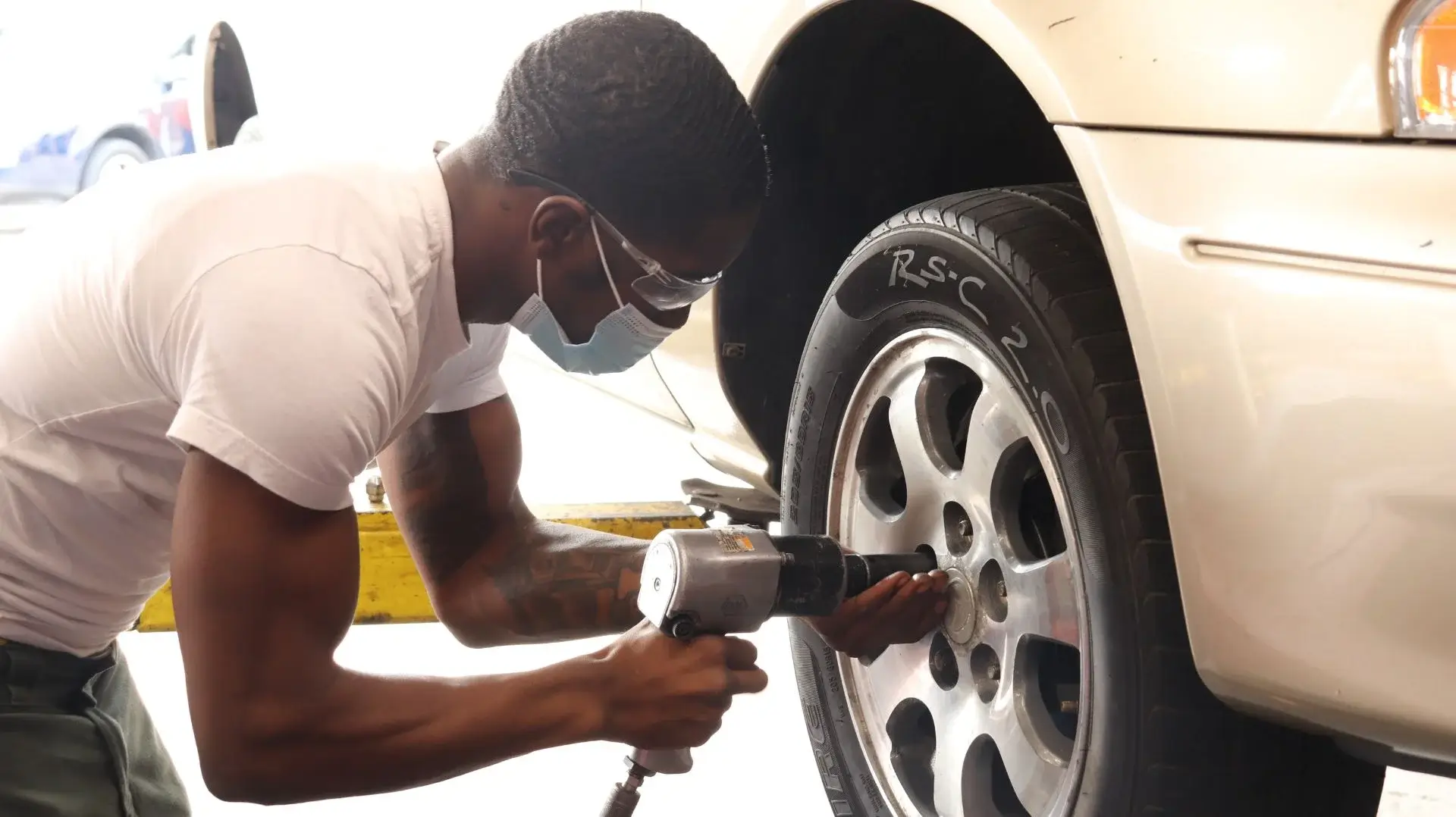When the cooling (A/C) system in your vehicle starts to malfunction, it can be irritating, especially on warm summer season days. Comprehending one of the most usual reasons for A/C problems can assist you attend to the issue quickly and avoid expensive repair work. Below are several reasons your car's air conditioning might not be functioning as it should.
![]()
If your A/C blows warm or insufficiently great air, it can be an indication that the cooling agent needs to be reenergized. An auto mechanic will certainly have the ability to examine the refrigerant level and top it off or repair any leaks causing the loss of cooling agent.
![]()
Indications of a damaged compressor include uncommon noises like grinding or screeching, or the a/c blowing warm air rather than cool air. A defective compressor can typically be repaired or replaced, yet disregarding it may cause a pricey fixing or substitute of the entire A/C system.
When the air flow is restricted, the A/C system has to function more challenging to cool the cabin, which can lead to inefficient efficiency. Changing the air filter on a regular basis-- normally every 12,000 to 15,000 miles-- can prevent air flow issues and maintain your A/C running efficiently.
If your A/C system quits working suddenly, it could be due to an electric problem. A qualified technician will have the ability to inspect the electrical parts and replace any kind of defective components.
Usual indications of a cooling fan issue include the A/C blowing cozy air or a rise in engine temperature. If you suspect an issue with the cooling fans, it is very important to have them evaluated and fixed asap to protect against further damages to the A/C system.
If you notice that your A/C blows warm air, or if the air gets cold just periodically, the expansion shutoff may be the offender. An auto mechanic will certainly be able to inspect and change the shutoff if required.
![]()
An expert mechanic can make use of special devices to discover leakages in the system and fix them. Without fixing leakages, your A/C will remain to lose refrigerant, and your auto will likely experience persisting concerns.
Exactly How to Avoid A/C Issues. To keep your A/C system operating successfully and prolong its life-span, adhere to these preventative ideas:
Run your A/C frequently: Also in the chillier months, run the A/C for a couple of minutes every couple of weeks to keep the system lubed and the seals undamaged. Check cooling agent levels: Periodically inspect the refrigerant levels and top them off if required. Replace the cabin air filter: Replace your cabin air filter regularly to make sure excellent air movement and keep the system functioning effectively. Keep the condenser clean: Consistently tidy the condenser to remove debris like leaves or dust that could block air movement. Final thought. Comprehending the common causes of A/C issues can help you take the right actions to maintain your vehicle's cooling system in top problem. If you observe any issues with your A/C system, speak with a certified technician to examine and fix the problem before it gets even worse.
- Reduced Cooling Agent Levels. The cooling agent is an essential component in your auto's A/C system. It assists take in warm from the air inside the cabin and expels it outside. The system can not cool down the air effectively if the cooling agent degree is low. Low cooling agent is usually caused by tiny leaks in the system or as a result of the cooling agent vaporizing in time.

If your A/C blows warm or insufficiently great air, it can be an indication that the cooling agent needs to be reenergized. An auto mechanic will certainly have the ability to examine the refrigerant level and top it off or repair any leaks causing the loss of cooling agent.
- A Faulty Compressor. The compressor is accountable for distributing refrigerant throughout the A/C system. It is powered by the engine and functions by pressurizing the cooling agent to ensure that it can be cooled by the condenser. If the compressor falls short, the entire A/C system will quit working.

Indications of a damaged compressor include uncommon noises like grinding or screeching, or the a/c blowing warm air rather than cool air. A defective compressor can typically be repaired or replaced, yet disregarding it may cause a pricey fixing or substitute of the entire A/C system.
- Clogged Air Filters. The cabin air filter plays an essential role in maintaining the air inside your cars and truck tidy by trapping dirt, dust, and various other bits. Over time, the air filter can become clogged up, restricting air flow and causing the A/C to blow irregular or weak air.
When the air flow is restricted, the A/C system has to function more challenging to cool the cabin, which can lead to inefficient efficiency. Changing the air filter on a regular basis-- normally every 12,000 to 15,000 miles-- can prevent air flow issues and maintain your A/C running efficiently.
- Electrical Concerns. Modern cars and trucks have intricate electric systems, and concerns with circuitry or fuses can affect your A/C system. If a fuse strikes or electrical wiring becomes rusty, it can protect against the A/C system from functioning correctly.
If your A/C system quits working suddenly, it could be due to an electric problem. A qualified technician will have the ability to inspect the electrical parts and replace any kind of defective components.
- Broken Air Conditioning Fans. Cooling down followers assist control the temperature level of the A/C system by directing airflow across the condenser. If the air conditioning fans fall short or quit working, the cooling agent can not cool down appropriately, creating the air to continue to be warm.
Usual indications of a cooling fan issue include the A/C blowing cozy air or a rise in engine temperature. If you suspect an issue with the cooling fans, it is very important to have them evaluated and fixed asap to protect against further damages to the A/C system.
- Faulty Expansion Valve. The development valve manages the flow of cooling agent right into the evaporator, where the air is cooled before entering the cabin. If the development shutoff is defective or stopped up, it can interfere with the circulation of cooling agent, triggering the A/C to blow warm air. This problem can likewise cause the evaporator to ice up, causing a complete A/C failing.
If you notice that your A/C blows warm air, or if the air gets cold just periodically, the expansion shutoff may be the offender. An auto mechanic will certainly be able to inspect and change the shutoff if required.

- Leaks in the System. Leakages in your A/C system, whether in the refrigerant lines or parts like the evaporator or condenser, can trigger your A/C to quit working. Refrigerant leakages are just one of one of the most usual reasons for a decline in A/C efficiency. Also a little leakage can cause significant problems with the cooling process, as the cooling agent degree decreases and the system stops working to cool down the air properly.
An expert mechanic can make use of special devices to discover leakages in the system and fix them. Without fixing leakages, your A/C will remain to lose refrigerant, and your auto will likely experience persisting concerns.
Exactly How to Avoid A/C Issues. To keep your A/C system operating successfully and prolong its life-span, adhere to these preventative ideas:
Run your A/C frequently: Also in the chillier months, run the A/C for a couple of minutes every couple of weeks to keep the system lubed and the seals undamaged. Check cooling agent levels: Periodically inspect the refrigerant levels and top them off if required. Replace the cabin air filter: Replace your cabin air filter regularly to make sure excellent air movement and keep the system functioning effectively. Keep the condenser clean: Consistently tidy the condenser to remove debris like leaves or dust that could block air movement. Final thought. Comprehending the common causes of A/C issues can help you take the right actions to maintain your vehicle's cooling system in top problem. If you observe any issues with your A/C system, speak with a certified technician to examine and fix the problem before it gets even worse.
Navigation
Home
Latest Posts
The New Mazda CX-70: Where High-end Meets Efficiency
Published May 26, 25
2 min read
Depend On Basil Mitsubishi for Your Auto Components Requirements
Published May 22, 25
1 min read
Streamline Your Mitsubishi Acquisition with Basil Mitsubishi Funding
Published May 20, 25
2 min read